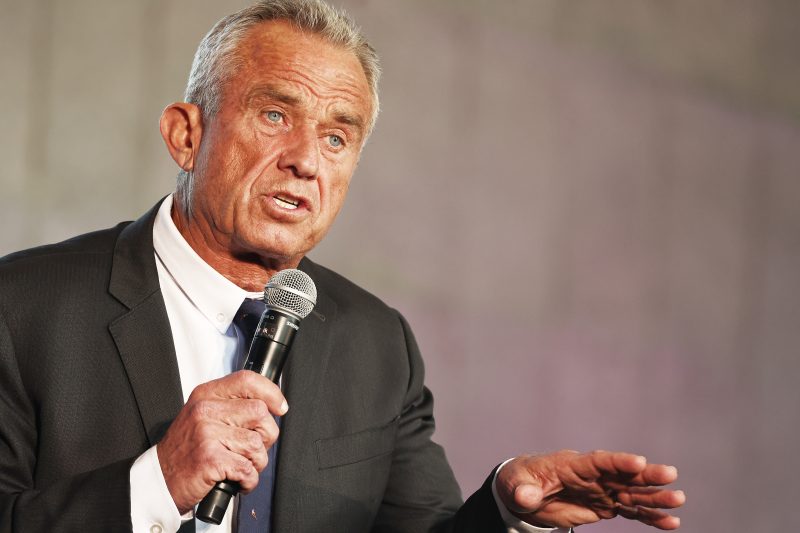
RFK Jr. Campaign Sparks Controversy Over Labeled ‘Activists’ in Jan. 6 Email Debacle
In a recent turn of events, Robert F. Kennedy Jr.’s campaign found itself embroiled in controversy after a misstep in describing the defendants of the January 6th Capitol insurrection as activists. The campaign’s stance initially seemed to align with a sympathetic view towards the individuals facing charges for their participation in the violent events that unfolded at the U.S. Capitol on that fateful day. However, the ensuing retraction and disavowal of that sentiment highlight the delicate balance political campaigns must navigate in today’s charged partisan climate.
The initial statement made by Kennedy’s campaign struck a chord with many, particularly those who view the January 6th insurrectionists as disruptive elements seeking to overturn the democratic process. By labeling these individuals as activists, the campaign inadvertently portrayed them in a light that seemed to downplay the severity of their actions and the impact they had on the nation as a whole. This misstep underscores the need for precision and care in the language used by political campaigns, as any misinterpretation can quickly spiral into a public relations crisis.
The subsequent disavowal of the initial statement by Kennedy’s campaign showcases the swift manner in which political entities must respond to public backlash in today’s digital age. With information spreading rapidly across social media platforms and news outlets, the need for a rapid and effective damage control strategy is paramount. In this case, the campaign’s quick retraction of their prior characterization of the January 6th defendants demonstrates a willingness to course-correct and address public concerns promptly.
The incident involving Kennedy’s campaign also raises questions about the role of political figures and entities in shaping public discourse and perception. By aligning oneself with certain groups or movements, politicians risk being associated with the values and actions of those groups. In this case, the campaign’s initial characterization of the January 6th defendants as activists inadvertently linked their cause with that of individuals who engaged in violent and unlawful behavior, a connection that the campaign sought to distance itself from in subsequent statements.
Moving forward, political campaigns must be vigilant in crafting their messaging and ensuring that their statements accurately reflect their values and principles. In today’s polarized political landscape, every word matters, and the potential for misinterpretation is ever-present. By learning from incidents such as the one involving Kennedy’s campaign, political entities can strive to communicate effectively and responsibly, avoiding the pitfalls of miscommunication and public backlash.
In conclusion, the incident surrounding Robert F. Kennedy Jr.’s campaign and their characterization of the January 6th defendants as activists serves as a cautionary tale for political campaigns everywhere. It highlights the importance of precision in language, the need for swift and effective damage control, and the risks associated with aligning oneself with certain groups or movements. By taking heed of these lessons, political entities can navigate the treacherous waters of public perception with greater care and foresight.
